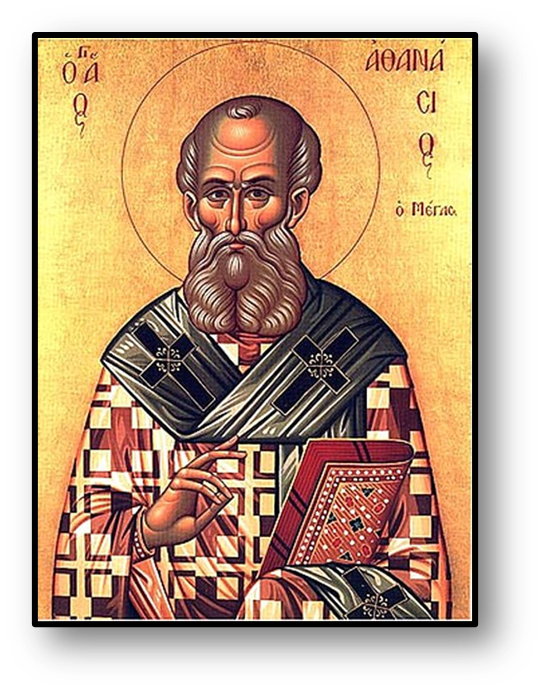Of Anakin Skywalker and Jesus Christ
By
http://www.impawards.com/1999/star_wars_episode_one_the_phantom_menace_ver2.html,
Fair use, https://en.wikipedia.org/w/index.php?curid=899074
“Who
is the boy’s father?” – Qui-Gon
“He
had no father” – Shmi
In the Principle of Causality, nothing in existence
has come into existence without some cause. It follows the Latin maxim ex
nihilo nihil fit, “out of nothing, nothing comes”. Typically, this maxim is
applied in a cosmological sense regarding the origin of the universe but will also
work in a chemical or biological sense regarding the origin of life. The fact that
all flora and fauna exist requires that they have a cause. Everything which
exists is only capable of existing in one of two ways, either as contingent or
as necessary. It cannot be both contingent and necessary as that would violate
a law of logic, the law of non-contradiction (LNC) which states that you cannot
have “A” and yet have “A” at the same time to the same extent. A thing cannot
exist contingently and necessarily at the same time to the same extent as that
would invoke a contradiction. Those things which exist contingently indicate
that it is possible for them not to exist. Those things which exist necessarily,
do so by their own nature, it is not possible that they should not exist,
shapes and numbers are said to exist in this fashion. But shapes and numbers
lack a creative force. Furthermore, there exists two different types of causes,
efficient cause, and instrumental cause. For Shmi to claim Anakin
had no father is a logical impossibility. Given that Anakin had a beginning indicates
that he exists contingently, it is therefore possible for him not to exist, and
therefore he must have a cause. But what type of cause? It would have to be an efficient
cause, a father. An efficient cause is that by which something comes to
be in existence, an instrumental cause is that through which something
comes to be in existence. That which is the efficient cause of some thing (or
someone) indicates that being must create being, or that like produces like. As
Anakin is a contingent being his cause must be efficient and not instrumental
as like must produce like. Being, or existence, cannot give what it does not
have. It follows logically therefore that he must have a father; the midi-chlorians
cannot be the father of Anakin. Just as bacteria have only ever been observed
to produce other bacteria, midi-chlorians can only produce other midi-chlorians,
like produces like, as it has this type of genetic information to give. It cannot
give what it does not have. A father can produce a child in his own “likeness”
as he has the genetic information available to do so.
Even Jesus
of Nazareth has a father. I am not speaking of Joseph the husband of Mary as he
acted as more of a surrogate to Christ’s actual Father. His birth did not come
about in the usual, natural way, but exists as a singular supernatural event. Luke’s
gospel records the exchange between Mary and the angel Gabriel. διὸ καὶ τὸ γεννώμενον
ἅγιον κληθήσεται, υἱὸς θεοῦ· Which translates, “therefore the child to be
born will be called holy—the Son of God.” (Lk. 1:35b, ESV)[1] The verb γεννώμενον
(gennomenon) meaning, to be born, is a passive, present – tense verb. Passive
verbs are those in which the subject is the one being acted upon (35b). Active
verbs are those in which the subject is the one performing the act. The
adjective ἅγιον (agion) meaning, holy, has the nominative case
ending in the Greek, indicating that it is the subject of the verb γεννώμενον,
“to be born”. The verse in its entirety shows a cause-and-effect type relationship.
If “B” is the effect (35b), then “A” (35a) must be its efficient cause. So,
what does the first part of the verse say (35a)? “The Holy Spirit will come
upon you, and the power of the Most High will overshadow you”. If “A” (35a) is
true, then it follows logically that “B” (35b) is necessarily true. Adjectives like
ἅγιον (holy) are descriptors, they describe or modify the verb.
Therefore, the adjective here describes that the one “to be born”, the verb,
will by nature, be “holy”. A character or attribute that only God Himself
possesses perfectly. The nouns υἱὸς θεοῦ (huios theou) translated “Son
of God” have the nominative and dative case endings respectively. υἱὸς
(Son) is nominative, indicating it as the subject of the verb κληθήσεται
(klethesetai) meaning, to call or to name, and θεοῦ (God) has
the dative case ending indicating possession, meaning that the one to be born
will be “the Son of God” or literally, “God’s Son.”
Moreover, there
does not appear to exist within the biblical or historical framework of the
church, any contention over Christ Jesus being the Son of God, save for the incident
concerning Arianism which I will address later. The heretic Marcion promulgated
the notion that Jesus existed as a phantom and did not come in the flesh. “Marcion…
has attempted to overthrow the doctrine of the Incarnation and has vented a
diabolical utterance declaring that He did not become flesh, nor was clothed
with it, but that this was mere fancy, and illusion, a piece of acting and
pretence….” (Emphasis added)[2] Such a notion wars against
itself in light of the scriptural account of His person being in the flesh and he
was therefore soundly denounced by various church fathers including Irenaeus, Tertullian,
and Hippolytus et al., so they designated him a heretic. It was
Tertullian who infamously stated, “What indeed has Athens to do with Jerusalem?
What concord is there between the Academy and the Church? what between heretics
and Christians?... Away with all attempts to produce a mottled Christianity of
Stoic, Platonic, and dialectic composition!”[3] As for Marcion, he could
not reconcile that the God of the Old Testament and the God of the New
Testament were one and the same, so he devised a notion that there were two
distinct gods. The angry God of the Old Testament and the loving God of the New
Testament. As such, he rejected the Old Testament and embraced only portions of
the New Testament and in doing so, created his own canon of the Bible. In it he
included an abbreviated version of Luke’s gospel and only ten of Paul’s
letters. I suppose he didn’t like what John had to say in his gospel, “by this
you know the Spirit of God: every spirit that confesses that Jesus Christ
has come in the flesh is from God, and every spirit that does not confess
Jesus is not from God. (1 John 4:2-3a, emphasis added) He also stated that, “those
who do not confess the coming of Jesus Christ in the flesh. Such a one
is the deceiver and the antichrist. (2 John 1:7, emphasis added) So, Marcion
did not ultimately deny the Sonship of Jesus Christ, only His being incarnatus.
The heresy
of Valentinus is connected with the Pythagorean and Platonic theory. Plato, in
the Timæus, derived his impressions from Pythagoras and they derived their tenets
originally from the Egyptians, and introduced their novel opinions among the
Greeks. Valentinus took his opinions from them, he endeavoured to construct a
doctrine of his own, yet, in point of fact, all he did was alter the doctrines
of those thinkers in names only, and numbers, and had adopted a peculiar
terminology of his own. Hippolytus
remarked, “And
from this (system), not from the Gospels, Valentinus, as we have proved, has
collected the (materials of) heresy—I mean his own (heresy)—and may (therefore)
justly be reckoned a Pythagorean and Platonist, not a Christian.”[4] Valentinus was a
contemporary of Marcion, and like Marcion adopted many of the same views; that
all matter is evil, and as a result Jesus could not have come in the flesh and
by extension there can be no physical resurrection. But again, like Marcion, he
did not deny Jesus as the Son of God.
As for
Arius, “he reasoned that the expression ‘eternal father and son’ was an
oxymoron. For the Father to have begotten the Son, He must be older than the
Son; so there must have been a time when the Son did not exist…Arius argued that
if the Son were without a beginning, then he would be a brother of God, and not
a son.”[5] Arius attempted an appellation
of Luke’s declarative phrase, in Acts 2:36 which states, “God has made
him both Lord and Christ, this Jesus whom you crucified” (Emphasis added) and Paul’s
descriptor of Christ’s person as “the firstborn of all creation” (Col.
1:15, emphasis added) as evidence for his contention that Christ was a created
being, “there was once when he was not” and therefore not co-eternal with the
Father. What Arius failed to understand was that both these references are positional,
referring to His pre-eminence over all of creation, not His origin. The
implication of Arius’ views did insinuate a denial of the Sonship of Christ. That
“Son of God” was merely his epithet, not who He was in point of fact. But “in
point of fact”, there is much evidence against such a view, and little to none
in support of it.
In response
to the heretical behaviour of the Gnostic Maricon (A.D. 85-160), the gnostic
Valentinus (A.D. 100-180), Arius (A.D. 256-336), et al., church fathers developed
what become recognized as The Apostles Creed in the 2nd century ca.
A.D. 140 which states in part, “I believe in God, the Father almighty, creator
of heaven and earth. I believe in Jesus Christ, his only Son, our Lord….”
(Emphasis added)[6]
In A.D. 325 an ecumenical council was convened at Nicaea in response to the
heresy of Arius. Out of which was developed the Nicene Creed that states in
part, “We
believe in one God, the Father Almighty, Maker of all things visible and
invisible; And in one Lord Jesus Christ, the Son of God….” (Emphasis
added)[7]. The second ecumenical
council, The Council of Constantinople I in A.D. 381, echoed the council of Nicaea
stating, “We believe in one God, the Father Almighty, Maker of heaven and
earth, and of all things visible and invisible. And in one Lord Jesus Christ, the
only begotten Son of God….”[8] (Emphasis added). Generally
speaking, all councils and creeds were uniform in their construction, that
Jesus Christ is the Son of God.
[1] Unless
otherwise indicated, all biblical passages referenced are in the English
Standard Version
[2] John
Chrysostom, “Against Marcionists and Manichæans,” in Saint Chrysostom: On the
Priesthood, Ascetic Treatises, Select Homilies and Letters, Homilies on the
Statues, ed. Philip Schaff, trans. W. R. W. Stephens, vol. 9, A.
[3] Tertullian,
“The Prescription against Heretics,” in Latin Christianity: Its Founder,
Tertullian, ed. Alexander Roberts, James Donaldson, and A. Cleveland Coxe,
trans. Peter Holmes, vol. 3, The Ante-Nicene Fathers (Buffalo, NY: Christian
Literature Company, 1885), 246.
[4] Hippolytus
of Rome, “The Refutation of All Heresies,” in Fathers of the Third Century:
Hippolytus, Cyprian, Novatian, Appendix, ed. Alexander Roberts, James
Donaldson, and A. Cleveland Coxe, trans. J. H. MacMahon, vol. 5, The
Ante-Nicene Fathers (Buffalo, NY: Christian Literature Company, 1886), 85.
[5] David
Beale, Historical Theology In-Depth: Themes and Contexts of Doctrinal
Development since the First Century Vol.1. (Greenville, SC.: Bob Jones
University Press, 2013), 232
[6] Select
Library of the Nicene and Post-Nicene Fathers of the Christian Church, First
Series (New York: Christian Literature Company, 1889), 205.
[7] David
Beale, Historical Theology In-Depth: Themes and Contexts of Doctrinal Development
since the First Century Vol.1. (Greenville, SC.: Bob Jones University Press,
2013), 241.
[8]
Ibid., 281-2.



Comments
Post a Comment